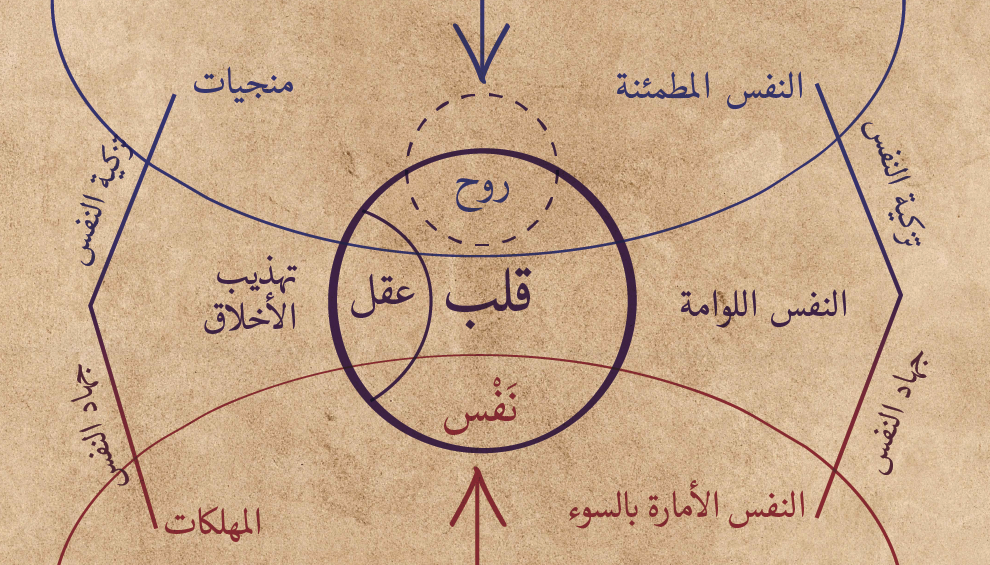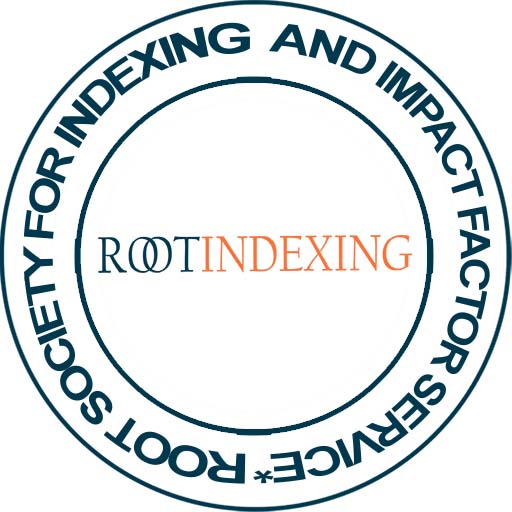ISLAMIC PSYCHOLOGY IN THE VIEW OF MAULANA ASHRAF ALI THANVI: A LITERATURE REVIEW
DOI:
https://doi.org/10.5281/zenodo.7478285Keywords:
Islamic Psychology, meditation, Muslim scholar, Ashraf Ali ThanviAbstract
Islamic Psychology is the emerging branch of traditional psychology. It is totally the contributions of prophetic teachings, acts, directions and work of the eminent Muslim scholars including Al-Kindi, AlFarabi, IbnSina, Imam Ghazali and Ashraf Ali Thanvi etc. The Holy prophet (PBUH) is the founder of Muslim psychology. He teached the divine codes revealed by Allah to him time to time. The aim of this paper is to review and collect viewpoints of Maulana Ashraf Ali Thanvi regarding psychology and psychotherapy from Islamic perspective. To collect data for this paper different data bases were searched for research articles on Thanvi’s teachings and books of ashraf Ali Thanvi were also studied to gather information related to psychology and psychotherapy. The gathered information was divided into different heading of theory of personality, theory of mental disorders, theory of personality, group therapy, meditation and treating the Nafs, etc.
References
Ibn Majah no. 3055
Qur’ān, Sura Al-Nāzi’āt, 79: 40-41.
Sunan Ibn Majah no. 4142
Qur’ān, Sura an-Nisa 04;59
Sham, F. M. (2015). Islamic Psychotherapy Approach In Managing Adolescent Hysteria In Malaysia. J Psychol Abnorm Child 4: 142
Haque, A. (2004). Psychology from Islamic Perspective: Contributions of Early Muslim Scholars and Challenges to Contemporary Muslim Psychologists. Journal of Religion and Health, Vol. 43, No. 4.
Haque, A. and Mohamed, Y. (Eds.) (2009). Psychology of Personality: Islamic Perspectives. Pp. 295.Cengage: Singapore
Al-Karam, C.Y. (2018). Islamically Integrated Psychotherapy: Uniting Faith and Professional Practice. Templeton Press.
Kaplick, P. & Skinner, R (2017). The evolving Islam and Psychology Movement. European Psychologist, 22, 3, 198-204
Mansoor, A., A. (1998). Muslim Nafsiyat. Sham k bad Publications. Lahore. A Bahawalpure Road. PP 188- 210.
Rothman, A., & Coyle, A. (2018). Toward a Framework for Islamic Psychology and Psychotherapy: An Islamic Model of the Soul. Journal of Religion and Health
Haque, A., & Keshaverzi, H. (2014). Integrating indigenous healing methods in therapy: Muslim beliefs and practices. International Journal of Culture and Mental Health. Vol. 7, No.3, PP 297-314
Qur’ān, Sura an-Anfal 08;08
Ṣaḥīḥ al-Bukhārī no. 52
Al-Mu’jam al-Kabīr 1643
Basharat, Tahira. "A Comparative Study of the Personality Formulates of Ghazali and Freud." Journal of Islamic Thought and Civilization 10, no. 2 (2020): 223-242.
Skinner, R. (2010) An Islamic approach to psychology and mental health, Mental Health, Religion & Culture, 13:6, 547-551
Thanvi, A. A. (n.d.). Islah-e-Dil (Amelioration of the Heart). 297 pages, Umar Faruq Publishers, Karachi, Pakistan
Thanvi, A. A. (n.d.). Tarbiah as-Salik. 1736 pages. Zamzam Publishers, Karachi, Pakistan
Yasmin Nilofer Farooqi (2006) Understanding Islamic Perspective of Mental Health and Psychotherapy, Journal of Psychology in Africa, 16:1, 101-111
Deuraseh, N., Abu Talib, M. (2005). Mental health in Islamic medical tradition, The International Medical Journal. 4(2), 76-78.
Amber Haque & Hooman Keshavarzi (2014) Integrating indigenous healing methods in therapy: Muslim beliefs and practices, International Journal of Culture and Mental Health, 7:3, 297-314
Qur’ān, Sura al- Imran 03;176
Keskinoğlu, M., & Ekşi, H. (2019). Islamic spiritual counseling techniques. Spiritual Psychology and Counseling, 4, 333–350
Azhar, M. Z.,& Varma, S. L. (1995). Religious psychotherapy as management of bereavement
Acta Psychiatrica Scandinavica, 91(4), 233–235
Ali, I., S. (2007). Maulana Ashraf Ali Thanvi ka Tariq e Islah (Urdu). Lahore. Bait ul Uloom. Purani Anar Kali. PP 293-310.
Frame, M. W. (2003). Integrating religion and spirituality into counseling: A comp sive approach. Pacific Grove, CA: Brooks/Cole
Tan, S. Y. (2007). Use of prayer and Scripture in cognitive-behavioral therapy. Journal of Psychology and Christianity, 26, 101-111.
Khan, H.Z., Mughal, I., and Khan,Y. (2013). Combination of Psychological and Religious Intervention in Reducing Psychological Distress among University Students. Dialogue,8(3),261-272
Febbraro, A. R. G. (2005). An Investigation Into the Effectiveness of Bibliotherapy and Minimal Contact Interventions in the Treatment of Panic Attacks. Journal Of Clınıcal Psychology, 61, 6, 763-779.
Gavigan K. W. & Kurtts S. (2011). Using Children’s and Young Adult Literature in Teaching Acceptance and Understanding of Individual Differences. The Delta Kappa Gamma Bulletin, 77(2), 11-16
Rapee, R. M., Abbott, M. J.& Lyneham, H. J. (2006). “Bibliotherapy for children with anxiety disorders using written materials for parents: a randomized controlled trial”, Journal of Consulting and Clinical Psychology, 74, (3), 436-444.
McCulliss D. (2012). Bibliotherapy: historical and research perspectives. Journal of Poetry Therapy, 25, (1) 23-38
Naylor, V. E. vd. (2010). Bibliotherapy as a treatment for depression in primary care, journal of clinical psychology in medical settings, 17, (3) 258-271
Majeed A, Jabir K (2017), The Contribution of Muslims and Islamic Concepts: Rethinking and Establishing the Actual Origin of Concepts and Thought in Psychology ,International Journal of Indian Psychology, Volume 4 (2)
Aten, J.,& Leach, M. (Eds.). (2009). Spirituality and the therapeutic process: A com- prehensive resource from intake through termination. Washington, DC: American Psychological Association.
Bibi, A., Arouj, K. (2015). Group therapy of Ashraf Ali Thanvi in present era. Conference Proceeding. 2nd International Conference on Mental Health. International Islamic University Islamabad, Pakistan
Utz, A. (2011). Psychology from the Islamic perspective. Riyadh: International Islamic Publishing House
Quran; Surat Al Imran 3;17
Quran: Surat A-Tawba, 9:112
Quran; Al-Isra, 17:79-80.
Isgandarova, N. (2018). Muraqaba as a Mindfulness-Based Therapy in Islamic Psychotherapy. Journal of Religion and Health. 58(4), 1146-1160.
Al-Thani, A. (2012). The person-centred approach and the Islamic view of counselling. Healthcare Counselling & Psychotherapy Journal, 12(1)
Sahih Al Bukhari, no 6464.
Quran Surat al-Raʿd 13: 11.
Quran Surat al Nisāʾ 4: 40.
Hussein, R. G. (2015). Islamic counselling: An introduction to theory and practice. USA: Taylor & Francis Group

Downloads
Published
How to Cite
License
Copyright (c) 2022 AL MISBAH RESEARCH JOURNAL

This work is licensed under a Creative Commons Attribution 4.0 International License.
AL-MISBAH Research Journal is full open access and licensed under Creative Commons Attribution 4.0 International License; and Published by: Research Institute of Culture & Ideology (REINCI), Islamabad, Pakistan. This allows the research community and the general public to gain unlimited, free and immediate access to scholarly articles, and to reuse the content freely provided that proper attribution is given to the original authors.









